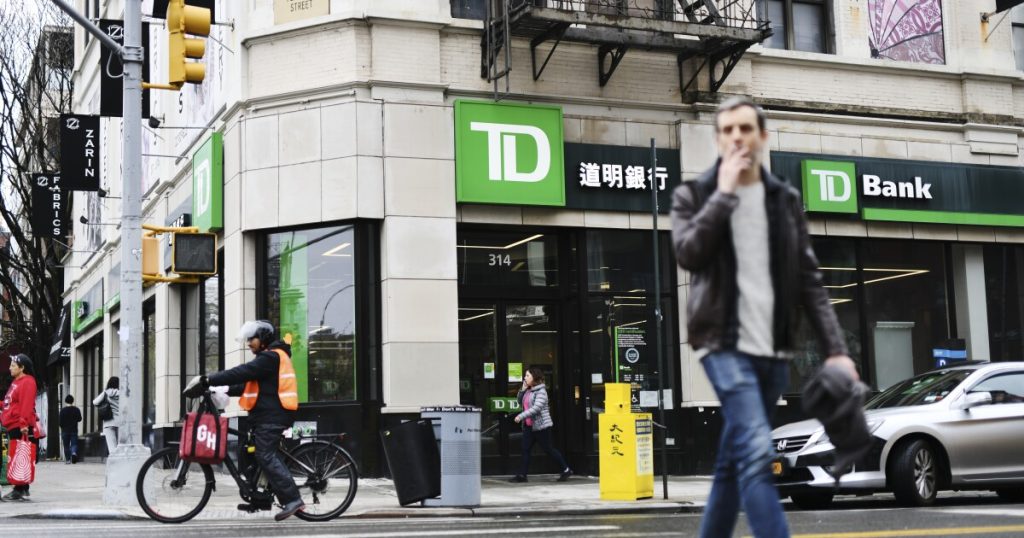This news is developing. Please check back here for updates.
In the same quarter that it pleaded guilty to historic money-laundering-related crimes, TD Bank Group posted higher earnings on stable Canadian operations.
The Toronto-based bank marked the start of a major transition in October when it agreed to
“Despite a challenging quarter, we are pleased with the Bank’s underlying fundamentals, which were reflected in our revenue growth,” CEO Bharat Masrani said in a press release. “A key development this quarter was the resolution of our U.S. AML matters, bringing important clarity to our stakeholders. Remediation is our number one priority, and we continue to make meaningful progress in addressing the failures.”
The results reflected higher fee income in markets-related businesses, volume growth in Canada and stable U.S. deposits, Masrani said. The bank said in October that it expects compliance expenses and balance sheet restructuring will dampen earnings going into 2025.
TD’s earnings-per-share of 1.97 Canadian dollars ($1.40) for the three months ended Oct. 31 fell short of consensus analyst estimates of CA$2.52 according to S&P Capital IQ. Revenue rose to CA$15.5 billion from CA$13.2 billion and beat analysts’ forecasts of CA$12.4 billion according to S&P Capital IQ.
TD had previously built up a cushion to cover the regulatory penalties, which led to a third-quarter loss of 14 Canadian cents a share but largely shielded its fourth-quarter bottom line from the blow of the fines.
On Oct. 10, the Department of Justice announced TD was the first U.S. bank in history to plead guilty to money-laundering conspiracy violations. The bank also pleaded guilty to blundering its anti-money-laundering controls, as part of a coordinated resolution with the Federal Reserve, Office of the Comptroller of the Currency and the Treasury Department’s Financial Crimes Enforcement Network.
“We have taken full responsibility for the failures of our U.S. AML program and are making the investments, changes and enhancements required to deliver on our commitments,” Masrani said in October. “This is a difficult chapter in our bank’s history.”
Masrani took the blame for the debacles and said in September he would step down as CEO in the spring, as Raymond Chun, previously head of Canadian personal banking,
As the bank puts in the work to make costly compliance updates and calibrates its strategy to match regulatory limits to growth,
Leo Salom, CEO of TD’s U.S. subsidiary, said at the time that the bank would shrink its domestic assets by about 10%, implementing strategies like exiting certain lines of business, including auto dealer financing and the correspondent mortgage business, and by selling some of its “jumbo” residential mortgages.
On Thursday, the bank suspended its medium-term financial targets for adjusted EPS growth and return on equity and positive operating leverage. TD said it aims to update those targets in the second half of 2025.
In the fourth quarter, TD saw U.S. net income decline 34% from the prior year, to $634 million, as expenses of $1.5 billion dragged on revenue.
In Canada, TD saw net income rise 9% year-over-year to CA$1.8 billion.

